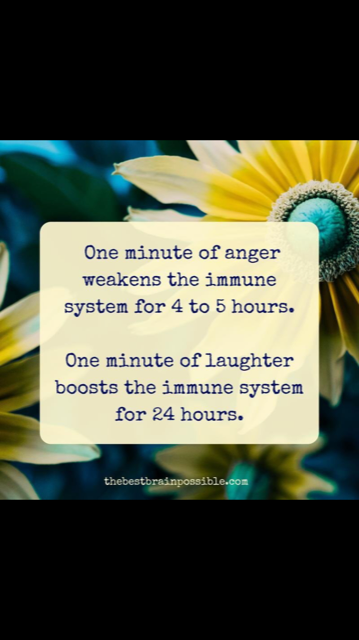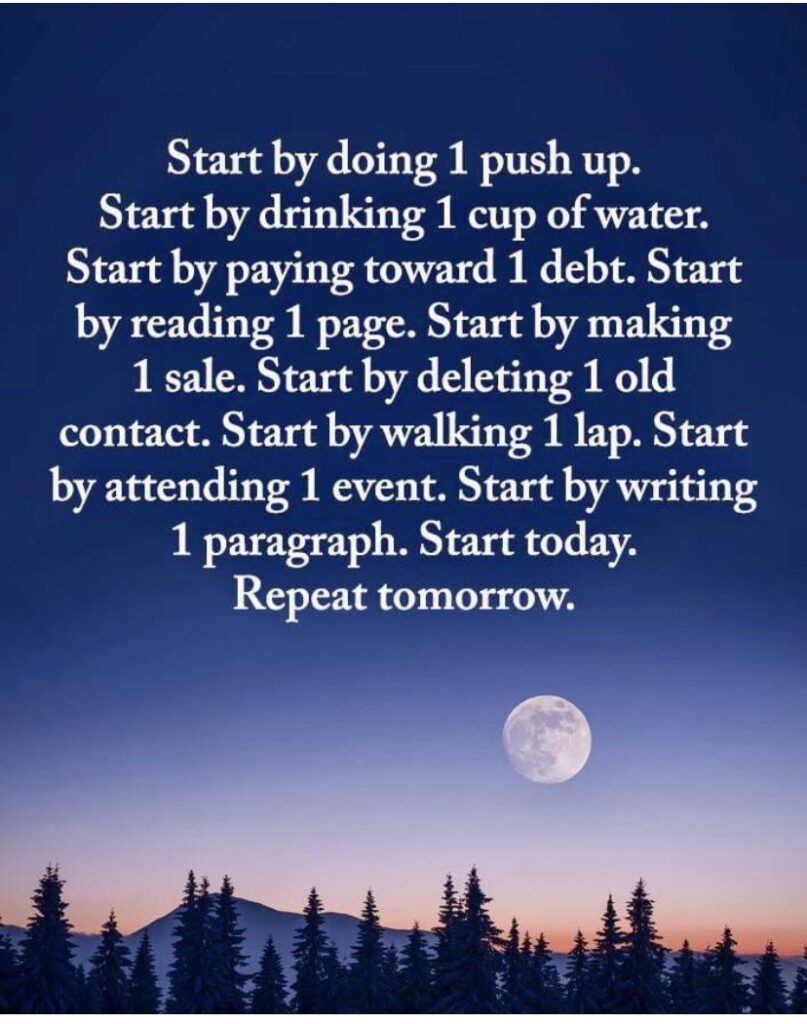
A Brief Reminder


What would it look like if we flipped the script on happiness? Rather than viewing it as the logical outcome of good things, could we look at happiness as the cause of good things? It is these questions and more that Dr. Ed Diener attempts to answer in his lecture “The New Science of Happiness.” Dr. Diener was a psychologist, professor, and author at the University of Utah and the University of Virginia as well as a senior scientist for the Gallup Organization. He is noted for his research over the past thirty years on happiness, including work on temperament and personality influences on well-being, theories of well-being, income and well-being, cultural influences on well-being, and the measurement of well-being. His body of work ha been cited over 257,000 times and remains impactful to this day. Check out his lecture below!
In a recent NPR interview, psychologist and friendship expert Marisa Franco details going through a rough breakup in 2015 and her attempts to learn on her friends for support. They did yoga, cooked and read together. As she and her friends grew closer, she realized they were a deep well of love, community and healing. And she began to understand the importance of non-romantic, non-family relationships.
Franco’s professional work now focuses on helping others experience that same profound level of friendship. Her latest publication offers tips on how to improve the quality of our platonic relationships. Some of these tips are below, but you can read the full article at
https://www.npr.org/2022/09/01/1120550646/how-to-show-your-friends-you-love-them-according-to-a-friendship-expert:
The following is summarized from the NPR article “How to have real fun — even when life’s got you down” which can be read in full at https://www.npr.org/2022/02/22/1082374139/how-to-have-fun-and-why-you-should
Catherine Price, author of “The Power of Fun: How to Feel Alive Again,” defines fun as a time when you are able to embody a mix of three things: playfulness, connection and flow.
Playfulness – “I don’t mean you have to play a game. You don’t have to play make-believe, you have to do charades,” says Price. Playfulness is when you embrace a spirit of lightheartedness and freedom. It means letting go of the idea that you have to be perfect or to achieve something.
Connection – You feel a sense of connection with the activity that you’re doing. You feel a sense of connection with your physical body. Or, most likely, you feel a sense of connection with another person or group of people through a shared experience.
Flow – You know that thing where you’re totally immersed in something and can even lose track of time? That.
Price also offers a handy acronym to help bring more fun in your days: SPARK
S — make Space for fun! Put your phone down, or even set aside some time on your calendar to make sure you are really dedicating yourself to looking for fun.
P — Pursue passions. “You don’t need to put pressure on yourself and think ‘I’m going to become a professional snowboarder,'” Price says. Set the bar low! Look for things that interest you and let those guide you.
A — A is for attracting fun, which means having an open mind about when and where fun might appear. Price recommends an improv-style “yes, and” approach to having fun, where you look for fun as well as jump into other folks’ fun.
R — Rebellion! Price found in her research that a little bit of gentle rebellion was a good way to make fun happen. So, jump in a pool with your clothes on! Go roller skating in the middle of the night! Stepping out of what is expected of you can be a great way to seek out fun moments.
K — Keep at it! Like any new practice, the only way to really incorporate it into your life is to try it many times. So don’t give up if basket weaving doesn’t work for you — maybe it’ll be guitar or making zines or working in the community garden that becomes your next fun magnet!

Dani Blum is an associate writer for Well at The New York Times. the Philadelphia Inquirer, and Philadelphia magazine. She recently penned an article meant to help people distinguish between burn-out, depression, and what do to about each. You can read the full article “How Can I Tell if I’m Depressed or Burned Out?” at NYTimes.com.
Dani writes “Workers can become burned out when they feel like they don’t have control over their day-to-day lives, getting bogged down in the minutiae of their tasks. People who are burned out may feel depleted and cynical about their jobs; they can resent their assignments and co-workers. They might feel irritable and ineffective, like they just can’t get anything done. For people who interact with others in their jobs, like health care workers or people in the retail and service industries, they might start to lose empathy, thinking of patients or customers as just another number, or a rote task to complete. There are also a litany of physical symptoms that can come with the unending stress of burnout: insomnia, headaches, gastrointestinal issues.”
She goes on to write “The World Health Organization includes burnout in the International Classification of Diseases, its diagnostic manual, characterizing it as an “occupational phenomenon,” not a medical condition. Depression, however, is a clinical diagnosis. People with depression often experience anhedonia, the inability to enjoy activities they once treasured. “You can be reading a book you used to love and now you hate it,” said Dr. Jessi Gold, a psychiatrist at Washington University in St. Louis. “Or you love watching Bravo, but now it doesn’t make you laugh anymore.” With burnout, you might not have energy for your hobbies; with depression, you might not find them fun or pleasant at all, said Jeanette M. Bennett, an associate professor who studies the effects of stress on health at the University of North Carolina at Charlotte.”
A key differentiator is that burnout gets better when you step away from work, said Dr. Rebecca Brendel, president of the American Psychiatric Association. When you take vacation time, or a mental health day, you feel at least slightly recharged. Depression doesn’t go away if you change your circumstances. “There’s not that bounce-back effect,” she said. “It takes more than that.”
The authors recommend the following for burnout:
But depression is a different story and they recommend:
Be sure to read the full article “How Can I Tell if I’m Depressed or Burned Out?” at NYTimes.com.
Recently, researchers Héctor García and Francesc Miralles have expanded their study of the Japanese concept of Ikigai, the rough translation of which is “the happiness of always being busy.” García and Miralles suggest every person has an Ikigai, and that it can be found through patient soul-searching. This generally involves finding balance between your passion, mission, profession, and vocation is the key. While the answer to your Ikigai may take time to uncover, here are 10 general rules to start you on your way:

A new paper suggests that it takes far less exercise than was previously thought to lower blood sugar after eating. While previous research focused on a 15-minute walking goal, a new meta-analysis from University of Limerick found that light walking after a meal, in increments of as little as two to five minutes, had a significant impact in moderating blood sugar levels. When participants went for a short walk, their blood sugar levels rose and fell more gradually which is a key goal in diabetes management. In a recent interview with the New York times Dr. Kershaw Patel, having review the research, said “Each small thing you do will have benefits, even if it is a small step.” Further proof that our journey through wellness does not need to be marked by successive big achievements, the small ones add up and set us up for success!
You can read the full study at https://link.springer.com/article/10.1007/s40279-022-01649-4
Author Lori Deschene runs the website tinybuddha.com. She shared that her site “is about reflecting on simple wisdom and learning new ways to apply it to our complex lives—complete with responsibilities, struggles, dreams, and relationships.” In one of her most recent posts she offers 10 suggestions on how weather the storms that will invariably come our way. They are as follows, but feel free to visit her post or download them in poster form!
1. You don’t have to feel guilty about feeling sad, bad, anxious, angry, or any other “negative” feeling. You’re not a “negative person.” You’re human.
2. You have a right to feel how you feel even if other people have it worse. Your pain is valid, regardless of what anyone else is going through.
3. You’re doing the best you can based on your life experiences, traumas, conditioning, beliefs, current challenges, and coping skills. As you learn new skills, you’ll cope better, but you may still struggle to apply what you’ve learned, and that’s okay. No one copes perfectly in an imperfect situation.
4. You don’t have to push yourself to be productive. It’s okay to rest or do the bare minimum when you’re struggling. This isn’t being lazy; it’s being kind to yourself—and you deserve it.
5. You’re not “falling behind.” It’s possible that you’re exactly where you need to be to learn, grow, and heal, meaning someday you might look back and consider this chapter a crucial part of your life journey.
6. You don’t have to please or impress anyone else, including yourself. Sometimes it’s enough just to live and make it through the day.
7. You don’t need to have anything figured out right now. You just need to take it one day at a time, trusting that you’ll find answers and solutions if you keep moving forward.
8. You are not alone, and you don’t have to pretend or hide. There are people who care and want to help—and because they’ve struggled too, they understand and would never judge you.
9. You won’t feel this way forever. Just as you’ve survived dark times before, you’ll eventually get past this and maybe even feel proud of yourself for how you made it through.
10. Nothing is guaranteed in the future, but you have the strength to handle whatever might be coming, and the capacity to make the best of it.
While music may not be an integral part of everyone’s life there is a growing body of evidence that playing that funky (or soulful, or rocking) music carries with it a number of benefits and can promote overall wellness.
As outlined by Lorrie Kubicek, MT-BC, contributor to the Harvard Health Blog, ongoing research suggests that music boosts our mood and well-being, and music therapy may help during treatments for certain health conditions. Some of these benefits include easing a transition to sleep with a soothing playlist, finding motivation for exercise by listening to upbeat dance music, aiding self-expression of emotions by singing, and connecting to others by attending a live musical performance.
In medicine, certified music therapists have helped patients by combing active and receptive interactions with music to decrease anxiety, shift patient mood, decrease pain perception during cancer or other medical treatment, increase expression and those living with dementia, and increase motivation among other benefits.
You can read the full article, “Can music improve our health and quality of life?” at https://www.health.harvard.edu/blog/can-music-improve-our-health-and-quality-of-life-202207252786
Need some music in your life right now? Check out Barack Obama’s 2022 Summer Playlist!